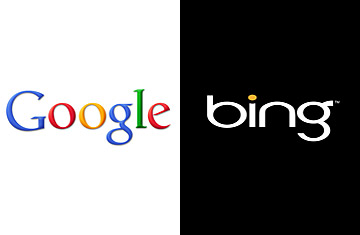
Not so very long ago, at the turn of the century, Google went from an obscure start-up to the Web's dominant search engine. It accomplished this feat in remarkably little time by being vastly better than established contenders like AltaVista. And Google has stayed on top ever since, the beneficiary of both its own never-ending efforts at self-improvement and the fact that humans are creatures of habit. In the U.S., Google currently gets nearly twice as many searches as all of its competitors combined.
Over the years, plenty of companies have labored to put a dent in that massive market share. Recently, however, a couple of Google's rivals — Yahoo! and Ask.com (née Ask Jeeves) — have waved white flags. In August, Yahoo! started delivering search results based on Microsoft's Bing. Then last week Ask.com announced that it would focus on its question-and-answer feature, outsourcing search to an unspecified third party.
I find these developments disheartening, even though I cheerfully admit to being a member of the Google-using majority. History keeps showing that enormously successful tech companies grow fat and complacent unless they face real competition. So I want the search wars to rage on even if the category has only one true superpower.
That means I'm paying close attention to Microsoft, the last major Google competitor that sees search as a smart investment rather than a fool's errand. Since relaunching its Live Search last year as the more peppily named Bing, it has signed that deal with Yahoo! and pumped resources into improving and promoting its offering. Most important, it has managed to give Bing something few Google alternatives have ever had: a distinct identity.
Whereas Google is famous for a home page that's mostly white space, Bing's trademark is a fancy photographic backdrop. Google responds to every query on any subject with a list of links to other sites; Bing uses a "decision engine" that has some features tailored to specific topics, such as travel, health and shopping, and sometimes provides information about those things right on the site rather than suggesting where to look elsewhere. (Its travel section is particularly rich, with features like advice on whether it's smartest to buy a plane ticket immediately or to wait for prices to drop.) And while Google and Facebook are squabbling, Microsoft has worked with Facebook (of which it owns a small chunk) to let Bing users see recommendations from their friends within search results.
Nimble, inventive and extremely well financed, Bing is the sort of search engine you would invent if your goal was to keep Google on its toes. And Google does seem to be paying attention. After years of making only subtle tweaks to its results pages, it has spent much of 2010 rolling out changes that are impossible to miss. In May, it added a Bing-like left sidebar of options. September brought Google Instant, which starts displaying links without waiting for you to finish typing. And instant previews — pop-up thumbnail images that let you peek at pages before you leave the results page — showed up last week.
